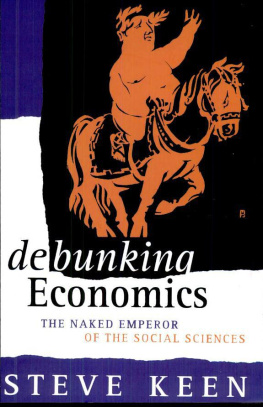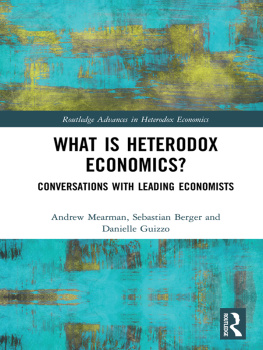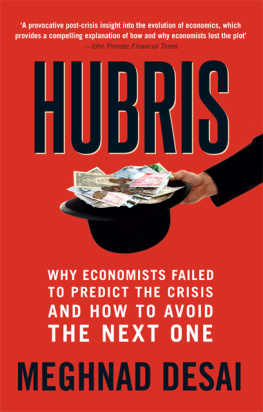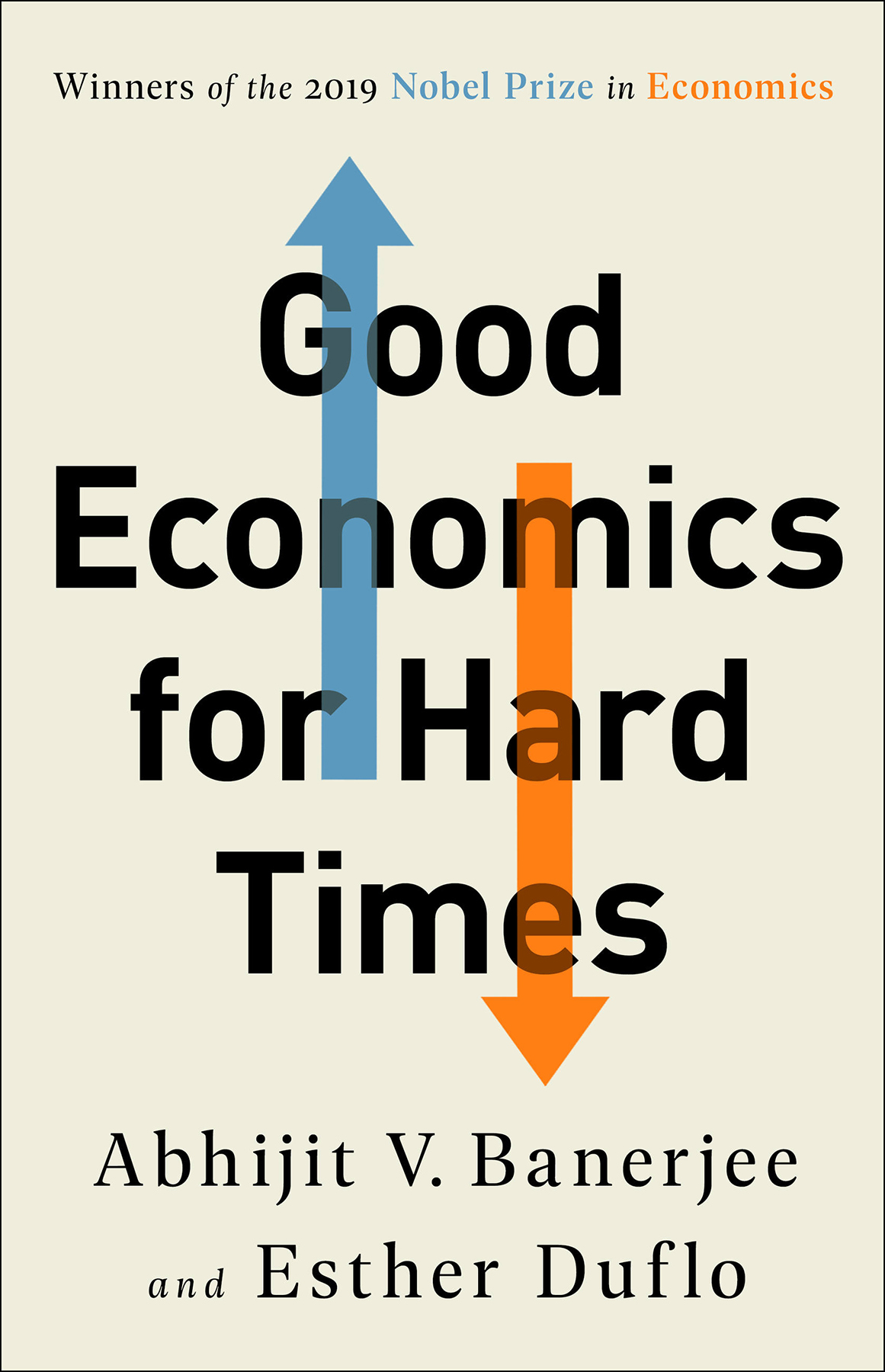Copyright 2019 by Abhijit V. Banerjee and Esther Duflo
Cover copyright 2019 Hachette Book Group, Inc.
Hachette Book Group supports the right to free expression and the value of copyright. The purpose of copyright is to encourage writers and artists to produce the creative works that enrich our culture.
The scanning, uploading, and distribution of this book without permission is a theft of the authors intellectual property. If you would like permission to use material from the book (other than for review purposes), please contact permissions@hbgusa.com. Thank you for your support of the authors rights.
Published by PublicAffairs, an imprint of Perseus Books, LLC, a subsidiary of Hachette Book Group, Inc. The PublicAffairs name and logo is a trademark of the Hachette Book Group.
The Hachette Speakers Bureau provides a wide range of authors for speaking events. To find out more, go to www.hachettespeakersbureau.com or call (866) 376-6591.
The publisher is not responsible for websites (or their content) that are not owned by the publisher.
Library of Congress Cataloging-in-Publication Data has been applied for.
In Good Economics for Hard Times, Banerjee and Duflo, two of the worlds great economists, parse through what economists have to say about todays most difficult challengesimmigration, job losses from automation and trade, inequality, tribalism and prejudice, and climate change. The writing is witty and irreverent, always informative but never dull. Banerjee and Duflo are the teachers you always wished for but never had, and this book is an essential guide for the great policy debates of our times.
Raghuram Rajan, Katherine Dusak Miller Distinguished Service Professor of Finance, University of Chicago Booth School of Business
Banerjee and Duflo move beyond the simplistic forecasts that abound in the Twittersphere and in the process reframe the role of economics. Their dogged optimism about the potential of economics research to deliver makes for an informative and uplifting read.
Pinelopi Goldberg, Elihu Professor of Economics, Yale University, and chief economist of the World Bank Group
Not all economists wear ties and think like bankers. In their wonderfully refreshing book, Banerjee and Duflo delve into impressive areas of new research questioning conventional views about issues ranging from trade to top income taxation and mobility, and offer their own powerful vision of how we can grapple with them. A must-read.
Thomas Piketty, professor, Paris School of Economics, and author of Capital in the Twenty-First Century
A magnificent achievement, and the perfect book for our time. Banerjee and Duflo brilliantly illuminate the largest issues of the day, including immigration, trade, climate change, and inequality. If you read one policy book this yearheck, this decaderead this one.
Cass R. Sunstein, Robert Walmsley University Professor, Harvard University, and author of How Change Happens
Banerjee and Duflo have shown brilliantly how the best recent research in economics can be used to tackle the most pressing social issues: unequal economic growth, climate change, lack of trust in public action. Their book is an essential wake-up call for intelligent and immediate action!
Emmanuel Saez, professor of economics at UC Berkeley
One of the things that makes economics interesting and difficult is the need to balance the neat generalities of theory against the enormous variety of deviations from standard assumptions: lags, rigidities, simple inattention, [and] societys irrepressible tendency to alter what are sometimes thought of as bedrock characteristics of economic behavior. Banerjee and Duflo are masters of this terrain. They have digested hundreds of lab experiments, field experiments, statistical studies, and common observations to find regularities and irregularities that shape important patterns of economic behavior and need to be taken into account when we think about central issues of policy analysis. They do this with simple logic and plain English. Their book is as stimulating as it gets.
Robert Solow, Nobel Prizewinner and emeritus professor of economics, Massachusetts Institute of Technology
In these tumultuous times when many bad policies and ideas are bandied around in the name of economics, common senseand good economicsis even more sorely needed than usual. This wide-ranging and engaging book by two leading economists puts the record straight and shows that we have much to learn from sensible economic ideas, and not just about immigration, trade, automation, and growth, but also about the environment and political discourse. A must-read.
Daron Acemoglu, Elizabeth and James Killian Professor of Economics, MIT, and coauthor of Why Nations Fail
To our children, Noemie and Milan, in the hope that they grow up to a more just and humane world,
and for Sasha, who didnt get a chance.
Ten years ago we wrote a book about the work we do. To our surprise, it found an audience. We were flattered, but it was clear to us that we were done. Economists do not really write books, least of all books human beings can read. We did it and somehow got away with it; it was time to go back to what we normally do, which is to write and publish research papers.
Which is what we were doing while the dawn-light of the early Obama years gave way to the psychedelic madness of Brexit, the Yellow Vests, and the Walland strutting dictators (or their elected equivalents) replaced the confused optimism of the Arab Spring. Inequality is exploding, environmental catastrophes and global policy disasters loom, but we are left with little more than platitudes to confront them with.
We wrote this book to hold on to hope. To tell ourselves a story of what went wrong and why, but also as a reminder of all that has gone right. A book as much about the problems as about how our world can be put back together, as long as we are honest with the diagnosis. A book about where economic policy has failed, where ideology has blinded us, where we have missed the obvious, but also a book about where and why good economics is useful, especially in todays world.
The fact that such a book needs to be written does not mean we are the right people to write it. Many of the issues plaguing the world right now are particularly salient in the rich North, whereas we have spent our lives studying poor people in poor countries. It was obvious that we would have to immerse ourselves in many new literatures, and there was always a chance we would miss something. It took us a while to convince ourselves it was even worth trying.








